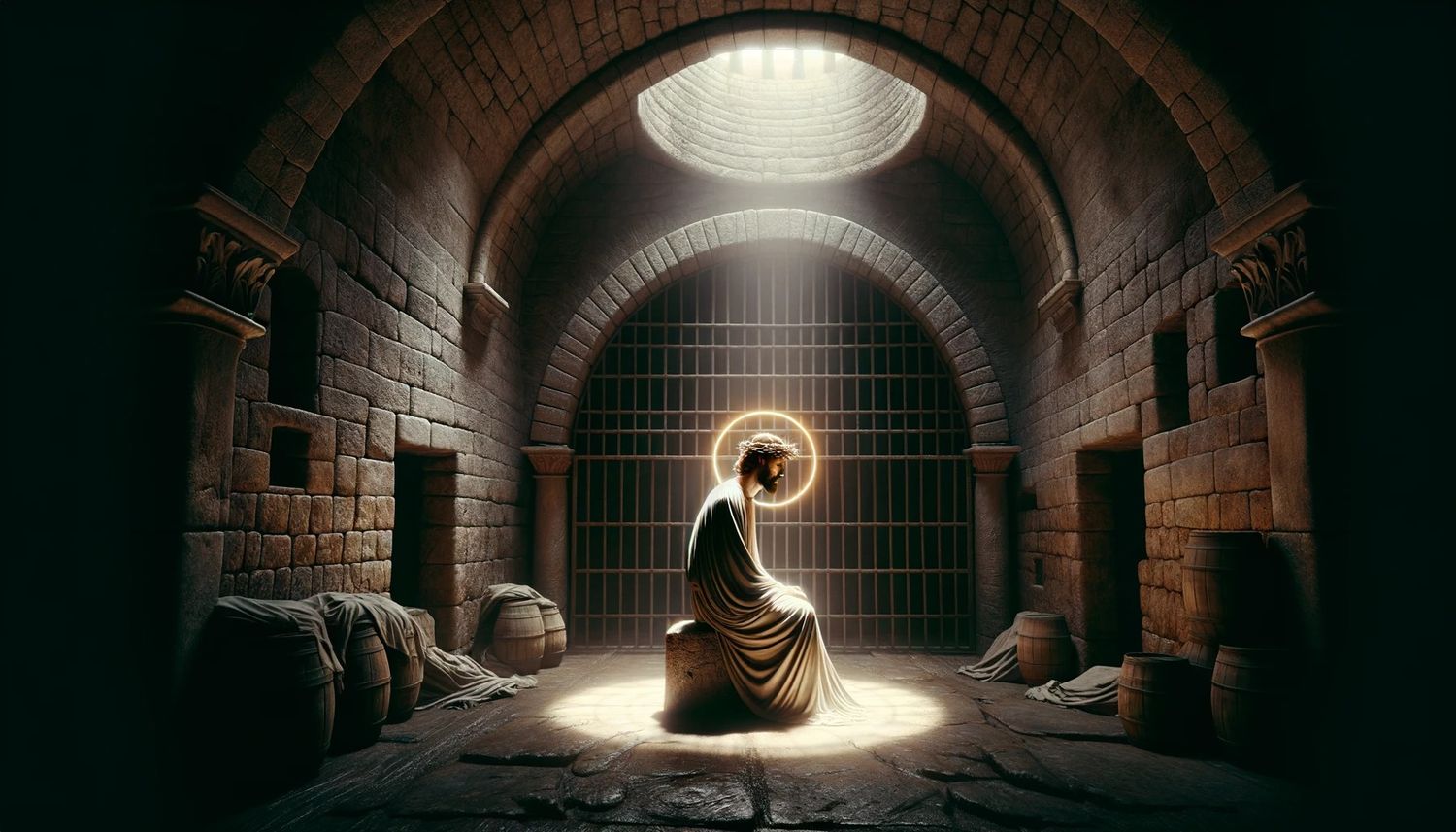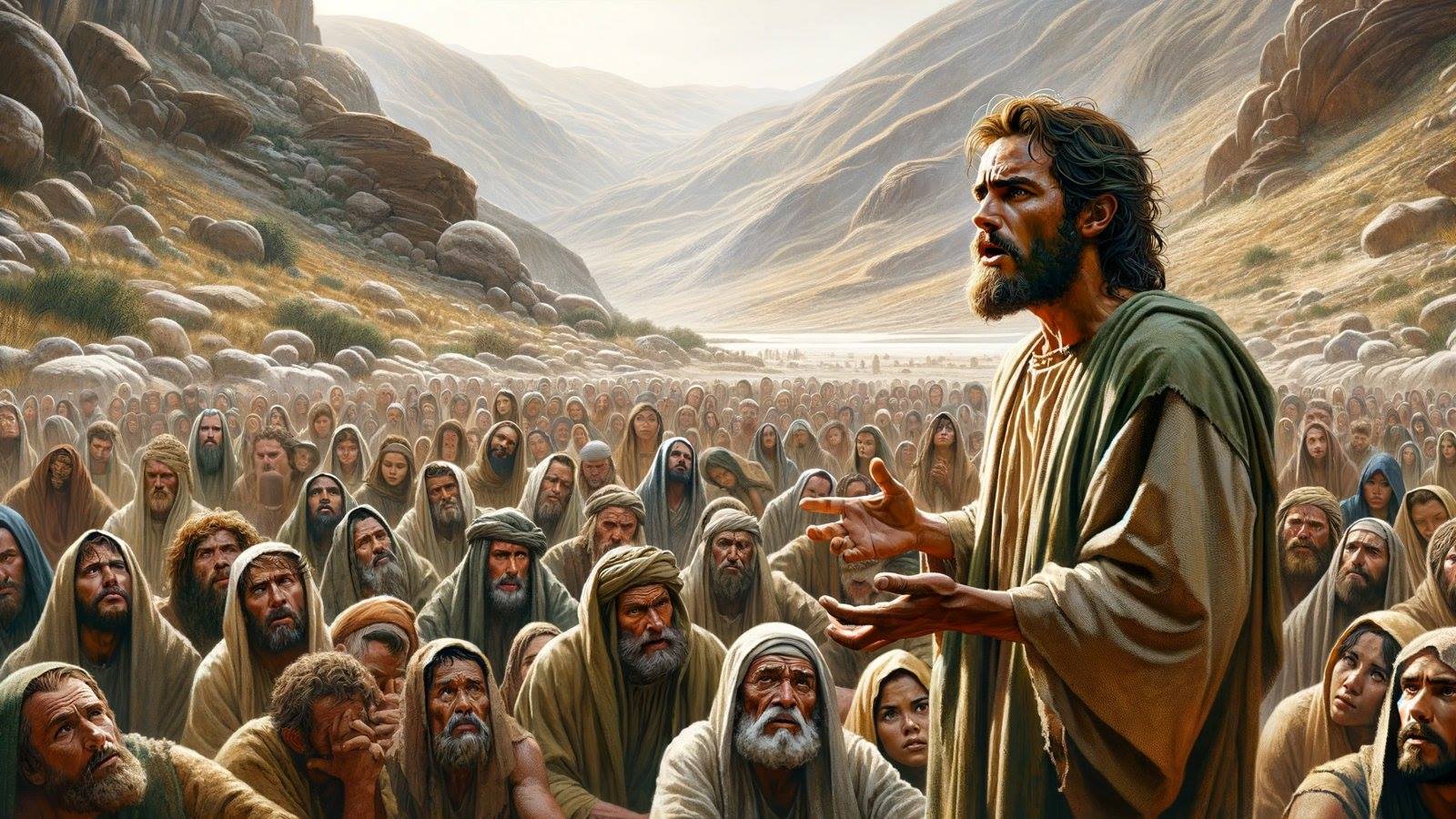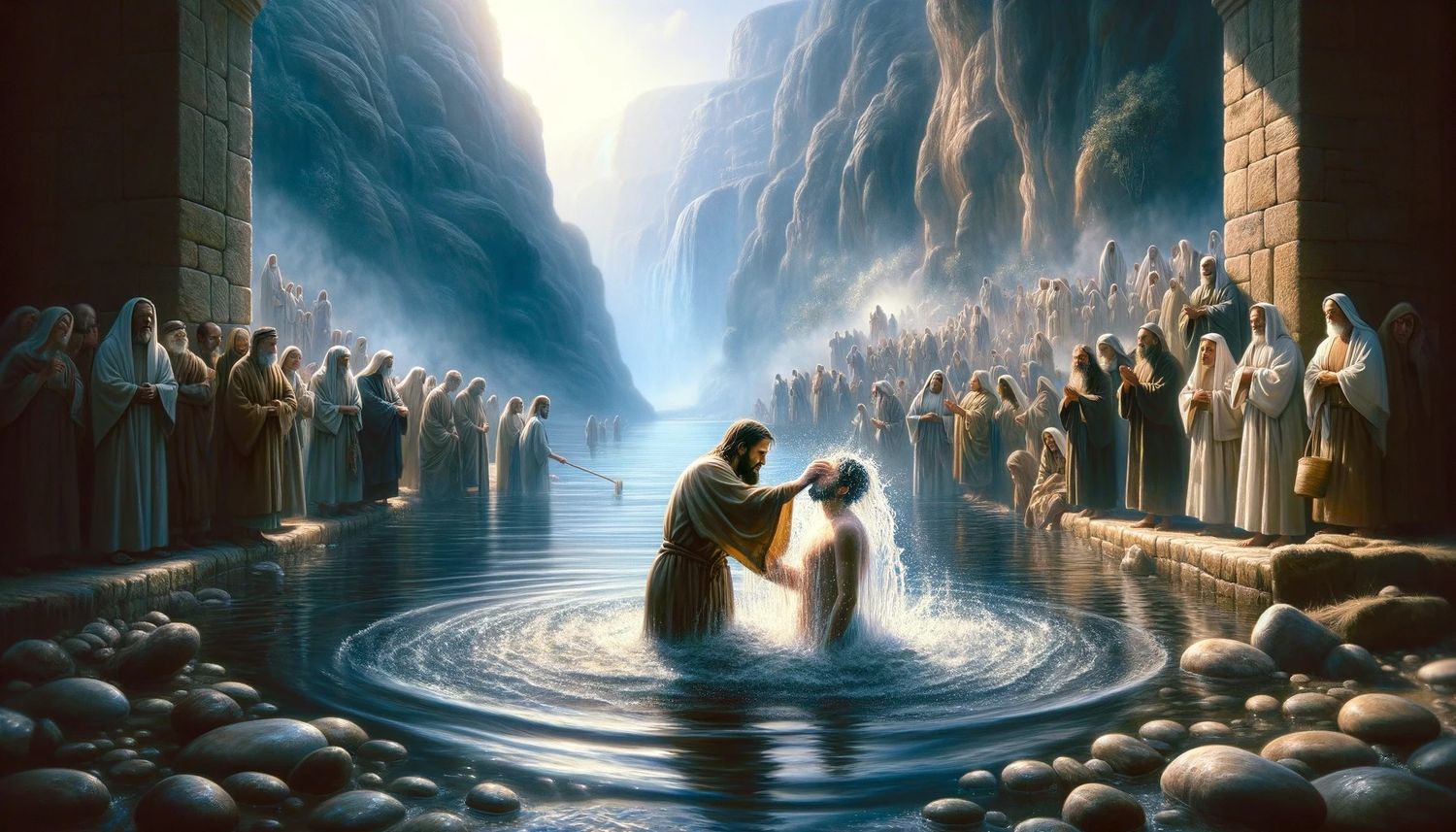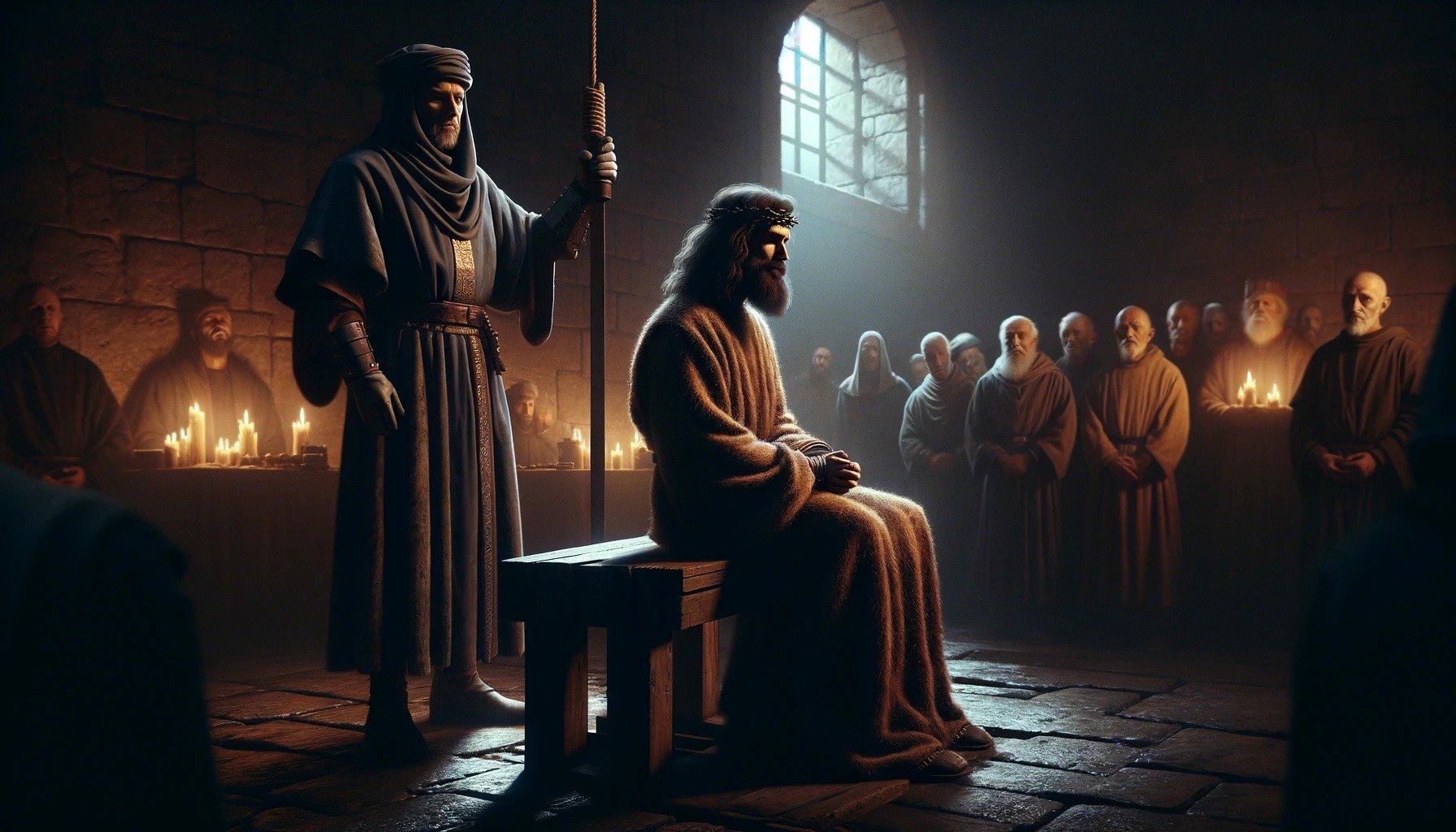Home>Theology and Spirituality>How Was John The Baptist Like Elijah
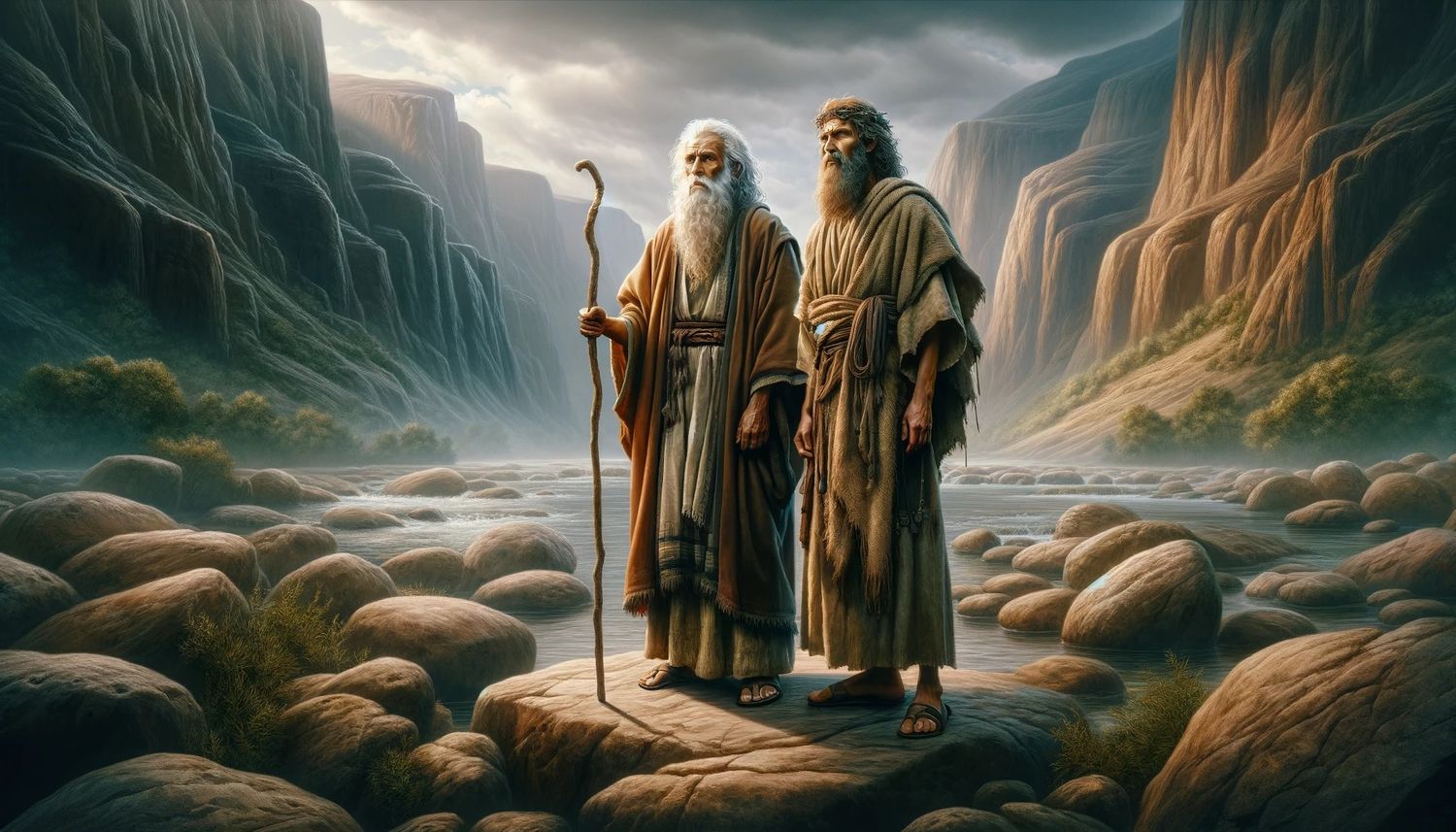

Theology and Spirituality
How Was John The Baptist Like Elijah
Published: February 22, 2024
Jason DeRose, Managing Editor at Christian.net, uses his expertise in religion and journalism to deepen understanding of faith's societal impacts. His editorial leadership, coupled with a strong academic background, enriches the platform’s diverse content, earning him recognition in both journalism and religious circles.
Discover the similarities between John the Baptist and Elijah in this insightful exploration of theology and spirituality. Explore their shared characteristics and significance in religious history.
(Many of the links in this article redirect to a specific reviewed product. Your purchase of these products through affiliate links helps to generate commission for Christian.net, at no extra cost. Learn more)
Table of Contents
Introduction
The lives of John the Baptist and the prophet Elijah are intertwined in profound and fascinating ways. Both figures played pivotal roles in the history of Judeo-Christian tradition, and their stories continue to captivate and inspire people across the globe. As we delve into the similarities and differences between these two remarkable individuals, we gain a deeper understanding of their impact on spirituality and the timeless lessons they impart.
John the Baptist and Elijah shared a profound sense of purpose and a calling to prepare the way for significant events in the divine plan. Their lives were marked by unwavering dedication to their missions, often in the face of adversity and opposition. By examining their lives and ministries, we gain insight into the enduring themes of faith, courage, and the unwavering commitment to truth.
Throughout history, the lives of John the Baptist and Elijah have been a source of inspiration and contemplation for theologians, scholars, and spiritual seekers. Their stories resonate with themes of prophecy, repentance, and the pursuit of righteousness, offering timeless wisdom that transcends cultural and religious boundaries.
As we explore the parallels and distinctions between these two iconic figures, we embark on a journey of discovery and reflection. By delving into their lives, teachings, and legacies, we uncover profound insights that continue to resonate with contemporary audiences. The enduring relevance of their stories serves as a testament to the enduring power of faith, conviction, and the pursuit of spiritual truth.
In the following sections, we will delve into the remarkable similarities in the ministries of John the Baptist and Elijah, examining their shared commitment to proclaiming the message of repentance and preparing the way for significant spiritual transformations. We will also explore the distinct aspects of their ministries, shedding light on the unique contributions each figure made to the tapestry of spiritual history. Through this exploration, we gain a deeper appreciation for the timeless significance of their lives and the enduring impact of their teachings.
Read more: How Is John The Baptist Elijah
Similarities in Ministry
John the Baptist and Elijah, despite being separated by centuries, shared striking similarities in their ministries that underscored their profound spiritual resonance. Their parallel paths offer a compelling testament to the enduring themes of prophetic calling, moral courage, and unwavering commitment to divine truth.
Prophetic Calling
Both John the Baptist and Elijah were called to be prophets, receiving a divine mandate to proclaim the word of God and prepare the way for significant spiritual transformations. Their prophetic calling was marked by a deep sense of purpose and an unwavering commitment to fulfilling their respective missions. In their roles as prophets, they fearlessly confronted the prevailing social and religious norms, challenging the status quo and calling people to a higher standard of righteousness.
Message of Repentance
Central to the ministries of both John the Baptist and Elijah was the urgent call to repentance. They fervently preached the need for individuals and communities to turn away from sin and embrace a life of moral and spiritual renewal. Their impassioned calls for repentance resonated with a sense of urgency, compelling people to examine their lives and realign themselves with the divine will. Through their powerful exhortations, they sought to awaken hearts and minds to the transformative power of genuine repentance.
Preparation for the Messiah
Both figures played pivotal roles in preparing the way for significant redemptive events. John the Baptist heralded the imminent arrival of the Messiah, calling people to prepare their hearts for the coming of the long-awaited savior. Similarly, Elijah's ministry was intricately linked to the anticipation of divine intervention and the restoration of God's covenant with His people. Their unwavering commitment to preparing the hearts and minds of the people for the fulfillment of divine promises underscores the profound significance of their ministries in the larger narrative of salvation history.
Read more: How Is John The Baptist Like Elijah
Moral Courage and Confrontation
John the Baptist and Elijah demonstrated remarkable moral courage in confronting the religious and political authorities of their time. Their fearless denunciations of injustice, hypocrisy, and moral corruption stood as powerful indictments against the prevailing power structures. Their willingness to speak truth to power, even at great personal risk, exemplified the prophetic tradition of holding individuals and institutions accountable to the standards of divine justice and righteousness.
Enduring Legacy
The enduring legacy of John the Baptist and Elijah continues to inspire and challenge individuals across generations. Their ministries serve as timeless reminders of the transformative power of prophetic witness, moral courage, and unwavering commitment to truth. The resonance of their messages transcends the boundaries of time and culture, offering enduring lessons on the enduring relevance of their teachings and the profound impact of their ministries on the course of spiritual history.
In examining the remarkable similarities in the ministries of John the Baptist and Elijah, we gain a deeper appreciation for the timeless significance of their lives and the enduring impact of their teachings. Their parallel paths stand as a testament to the enduring power of faith, conviction, and the pursuit of spiritual truth.
Preaching and Baptizing
Preaching and baptizing were central components of the ministries of John the Baptist and Elijah, serving as powerful expressions of their prophetic calling and their unwavering commitment to preparing the way for significant spiritual transformations.
John the Baptist
John the Baptist's ministry was characterized by fervent preaching and the symbolic act of baptism. He proclaimed a message of repentance, urging people to turn away from sin and embrace a life of moral and spiritual renewal. His impassioned sermons resonated with a sense of urgency, compelling individuals to examine their lives and realign themselves with the divine will. John's preaching was marked by a compelling authenticity and a prophetic boldness that captivated the hearts and minds of his listeners.
The act of baptizing, particularly in the waters of the Jordan River, held profound symbolic significance. It represented a public declaration of one's commitment to repentance and spiritual transformation. Through the ritual of baptism, John invited people to participate in a tangible expression of their desire to be cleansed from sin and to embrace a renewed relationship with God. The act of immersion in water symbolized a profound spiritual rebirth, signifying the washing away of past transgressions and the emergence of a new life dedicated to righteousness.
Elijah
Elijah's ministry, while not explicitly associated with the ritual of baptism, was characterized by a fervent call to turn the hearts of the people back to God. His prophetic proclamation challenged the prevailing idolatry and moral decadence of his time, compelling individuals to recommit themselves to the worship of the one true God. Elijah's bold confrontations with the religious authorities and his unwavering commitment to upholding the worship of Yahweh served as a powerful call to spiritual renewal and fidelity to the divine covenant.
While the act of baptizing was not a central feature of Elijah's ministry, his passionate preaching and unwavering commitment to calling the people back to God parallel the essence of John the Baptist's message of repentance and spiritual renewal. Both figures shared a profound dedication to preparing the hearts and minds of the people for significant redemptive events, emphasizing the transformative power of genuine repentance and the restoration of a right relationship with the divine.
In examining the preaching and baptizing aspects of their ministries, we gain insight into the profound commitment of John the Baptist and Elijah to awaken hearts and minds to the transformative power of genuine repentance and spiritual renewal. Their respective approaches to preaching and calling people to turn back to God serve as timeless reminders of the enduring significance of their ministries and the profound impact of their prophetic witness on the course of spiritual history.
Confronting Authority
The theme of confronting authority stands as a defining aspect of the ministries of both John the Baptist and Elijah, underscoring their unwavering commitment to upholding divine truth and justice in the face of entrenched power structures. Their fearless denunciations of injustice, moral corruption, and religious hypocrisy serve as powerful demonstrations of moral courage and prophetic conviction.
John the Baptist fearlessly confronted the religious and political authorities of his time, including the Pharisees and Sadducees, with uncompromising clarity and boldness. His scathing rebukes and uncompromising calls to repentance challenged the prevailing religious norms and societal injustices. By publicly challenging the religious elite and calling for genuine moral and spiritual transformation, John exemplified the prophetic tradition of holding individuals and institutions accountable to the standards of divine justice and righteousness.
Similarly, Elijah's confrontations with the authority of King Ahab and Queen Jezebel, as well as the prophets of Baal, showcased his unwavering commitment to upholding the worship of Yahweh and confronting the pervasive idolatry and moral decay of his time. His bold actions, including the dramatic confrontation on Mount Carmel, served as a powerful indictment against the religious syncretism and moral compromise that had permeated the highest levels of authority in the kingdom of Israel.
Both John the Baptist and Elijah stood as unwavering witnesses to the truth, fearlessly challenging the abuse of power and the perversion of religious authority. Their courageous confrontations with authority figures serve as timeless reminders of the prophetic imperative to speak truth to power, even at great personal risk. Their unwavering commitment to upholding divine justice and righteousness in the face of entrenched opposition continues to inspire and challenge individuals across generations.
In examining the theme of confronting authority in the ministries of John the Baptist and Elijah, we gain a deeper appreciation for the enduring relevance of their prophetic witness and the timeless significance of their unwavering commitment to upholding divine truth. Their fearless confrontations with authority figures stand as a testament to the enduring power of moral courage and the prophetic imperative to hold individuals and institutions accountable to the standards of justice and righteousness.
Dress and Lifestyle
The distinctive dress and lifestyle of John the Baptist and Elijah reflected their prophetic calling and uncompromising commitment to their respective missions. These outward expressions served as powerful symbols of their separation from the prevailing social and religious norms, emphasizing their singular dedication to divine truth and righteousness.
John the Baptist's attire, consisting of a garment of camel's hair and a leather belt around his waist, conveyed a deliberate departure from the opulence and ostentation associated with the religious elite of his time. His choice of clothing underscored his rejection of materialism and his embrace of a simple, ascetic lifestyle. This intentional renunciation of worldly comforts and status served as a visual proclamation of his prophetic message, signaling a radical departure from the values of the prevailing culture.
Similarly, Elijah's attire, described as being clothed in a garment of hair with a leather belt around his waist, reflected a similar commitment to simplicity and detachment from the trappings of wealth and luxury. His distinctive dress communicated a powerful message of prophetic separation, emphasizing his unwavering dedication to the worship of Yahweh and his uncompromising stance against the prevailing idolatry and moral compromise.
The ascetic lifestyle embraced by both figures further reinforced their prophetic witness, serving as a tangible expression of their rejection of the materialism and moral decadence that had permeated the society of their time. Their deliberate choice to live in the wilderness, away from the centers of power and influence, underscored their commitment to a life of prayer, contemplation, and unwavering fidelity to the divine call.
In their distinctive dress and ascetic lifestyle, John the Baptist and Elijah embodied the prophetic tradition of radical separation and uncompromising commitment to divine truth. Their outward expressions of simplicity and detachment served as powerful symbols of their prophetic witness, challenging the prevailing cultural norms and calling people to a higher standard of righteousness and spiritual devotion.
The enduring significance of their distinctive dress and lifestyle serves as a timeless reminder of the prophetic imperative to embody the values of simplicity, humility, and unwavering commitment to divine truth. Their lives stand as a testament to the transformative power of prophetic witness and the enduring impact of their uncompromising dedication to the pursuit of spiritual truth and righteousness.
Differences in Ministry
While John the Baptist and Elijah shared profound similarities in their ministries, they also exhibited notable differences that underscored the unique contributions each figure made to the tapestry of spiritual history. These distinctions offer valuable insights into the diverse expressions of prophetic calling and the multifaceted nature of divine revelation.
Read more: How Was John The Baptist Beheaded
Focus of Ministry
John the Baptist's ministry was intricately linked to the proclamation of the imminent arrival of the Messiah and the urgent call to repentance. His central message revolved around preparing the hearts and minds of the people for the transformative impact of the Messiah's redemptive mission. John's unwavering commitment to heralding the arrival of the long-awaited savior distinguished his ministry as a pivotal bridge between the prophetic tradition of the Old Testament and the dawning of the new covenant.
In contrast, Elijah's ministry was characterized by a fierce confrontation with the prevailing idolatry and moral decay of his time. His unwavering commitment to upholding the worship of Yahweh and challenging the pervasive influence of Baal worship set him apart as a fearless defender of the divine covenant. Elijah's dramatic confrontations with the prophets of Baal and his unwavering fidelity to the worship of Yahweh showcased the distinctive focus of his ministry on confronting the spiritual apostasy that had engulfed the kingdom of Israel.
Context and Historical Setting
The ministries of John the Baptist and Elijah unfolded in distinct historical and cultural contexts, shaping the nature of their prophetic witness. John the Baptist emerged as a prophetic voice in the intertestamental period, a time marked by spiritual longing and anticipation for the fulfillment of divine promises. His ministry resonated with the collective yearning for the arrival of the Messiah and the restoration of God's redemptive plan for humanity.
Elijah, on the other hand, operated within the tumultuous historical backdrop of the divided kingdom of Israel. His confrontations with the religious and political authorities of his time occurred against the backdrop of entrenched idolatry and moral compromise, as he sought to uphold the worship of Yahweh amidst pervasive spiritual apostasy.
Legacy and Spiritual Impact
The enduring legacy of John the Baptist and Elijah continues to inspire and challenge individuals across generations. John's pivotal role in preparing the way for the Messiah and his unwavering commitment to proclaiming the message of repentance left an indelible mark on the unfolding narrative of salvation history. His ministry served as a powerful catalyst for the transformative impact of the Messiah's redemptive mission, shaping the course of Christian spirituality for centuries to come.
Elijah's legacy as a fearless defender of the worship of Yahweh and a relentless opponent of idolatry continues to resonate with themes of unwavering fidelity to divine truth and the enduring struggle against spiritual compromise. His dramatic confrontations and unwavering commitment to upholding the worship of Yahweh left an enduring imprint on the prophetic tradition, serving as a timeless reminder of the transformative power of prophetic witness and moral courage.
In examining the differences in the ministries of John the Baptist and Elijah, we gain a deeper appreciation for the diverse expressions of prophetic calling and the multifaceted nature of divine revelation. Their respective contributions to the tapestry of spiritual history stand as a testament to the enduring relevance of their ministries and the profound impact of their unwavering commitment to upholding divine truth and righteousness.
Conclusion
In conclusion, the lives and ministries of John the Baptist and Elijah stand as enduring testaments to the transformative power of prophetic witness, moral courage, and unwavering commitment to divine truth. Their remarkable similarities underscore the timeless themes of prophetic calling, the urgent call to repentance, and the preparation for significant redemptive events. Both figures fearlessly confronted the prevailing social and religious norms, challenging the status quo and calling people to a higher standard of righteousness. Their unwavering dedication to preparing the hearts and minds of the people for the fulfillment of divine promises underscores the profound significance of their ministries in the larger narrative of salvation history.
The distinctive expressions of their ministries, from preaching and baptizing to confronting authority and embodying a simple, ascetic lifestyle, serve as timeless reminders of the enduring relevance of their teachings and the profound impact of their prophetic witness on the course of spiritual history. Their unwavering commitment to upholding divine justice and righteousness in the face of entrenched opposition continues to inspire and challenge individuals across generations.
While John the Baptist and Elijah exhibited notable differences in the focus of their ministries, the historical context in which they operated, and the legacy of their spiritual impact, their unique contributions to the tapestry of spiritual history underscore the diverse expressions of prophetic calling and the multifaceted nature of divine revelation. Their enduring legacies continue to resonate with themes of unwavering fidelity to divine truth and the enduring struggle against spiritual compromise, serving as timeless reminders of the transformative power of prophetic witness and moral courage.
In examining the lives and ministries of John the Baptist and Elijah, we gain a deeper appreciation for the enduring significance of their unwavering commitment to upholding divine truth and righteousness. Their lives stand as a testament to the enduring power of faith, conviction, and the pursuit of spiritual truth, offering timeless wisdom that transcends cultural and religious boundaries. The enduring relevance of their stories serves as a testament to the enduring power of faith, conviction, and the pursuit of spiritual truth.




